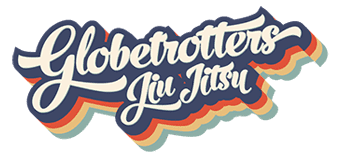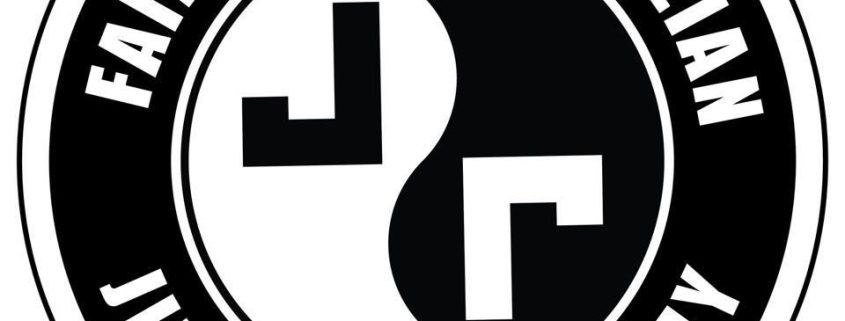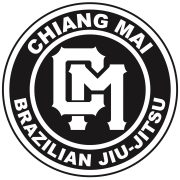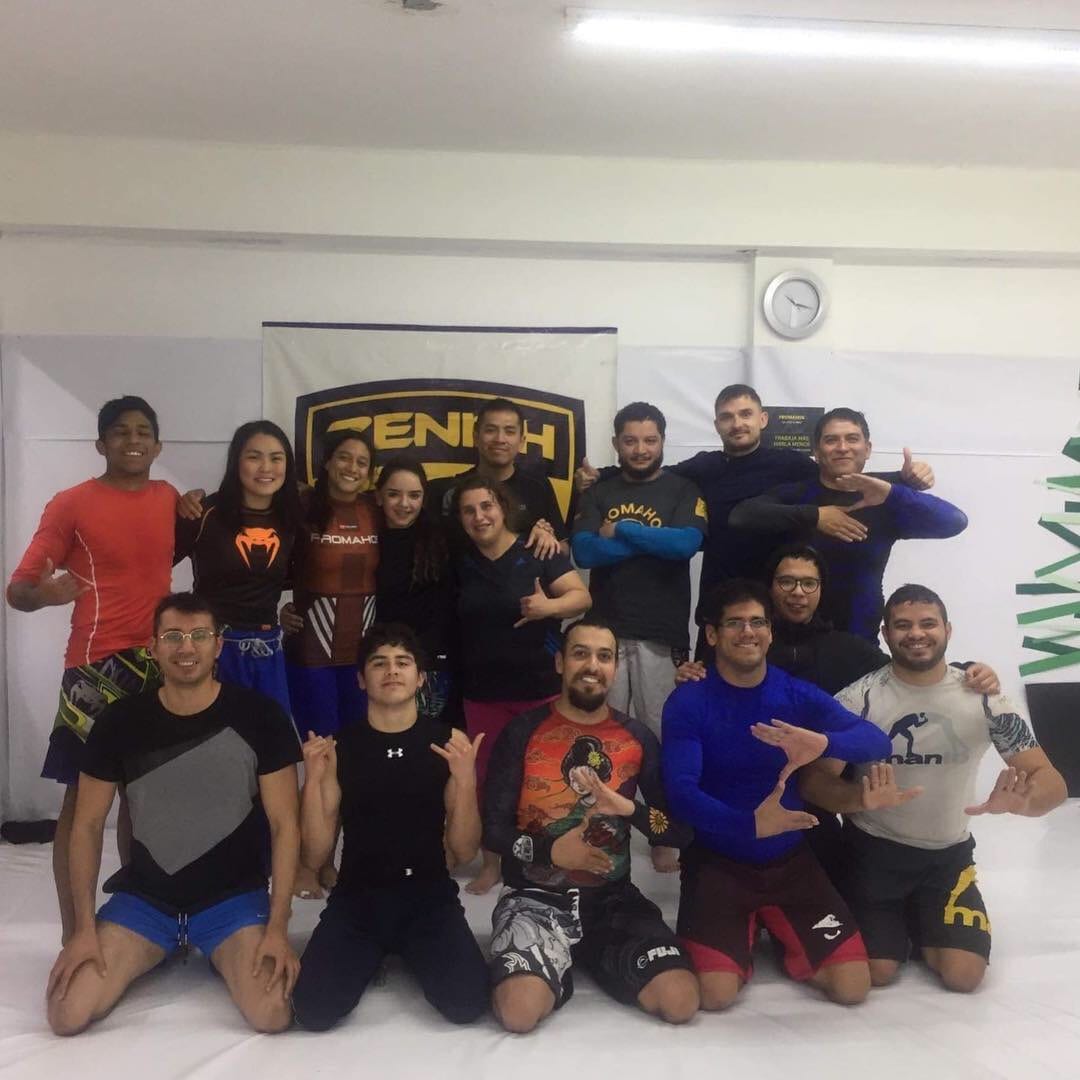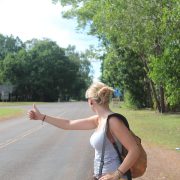Trekking across the world to become a talk therapist
Dust Mop Jiu Jitsu: The Expat Files: Chapter Six: Fairborn Brazilian Jiu Jitsu Academy-Fairborn, Ohio
-On basics, learning to conduct therapy around the world and realizing I’m standing next to Dave Chappelle
This is Chapter Six of what I’m calling the Expat Files. If you want to know more about what this project is, you can read more about it in the first article here. – I’ve referenced a few times that I started BJJ around the same time that I began grad school for Clinical Mental Health Counseling. Right away I felt like there had to be a connection between Jiu Jitsu and therapy. I usually left practice feeling a sense of bliss and clarity that would make any therapist jealous of my coach. But just like at Boston BJJ, in the therapeutic world, I had to learn the fundamentals. In Jiu Jitsu, fundamentals usually refers to the basic moves that everybody needs to survive in our sport. Since everyone knows them, they usually don’t work on anybody but the newest folks. But if you don’t know them, nothing else you do will work. In grad school, fundamentals was the name of a class that had a residency. That’s what brought me to Yellowsprings, Ohio for a week in December, 2018. My degree was mostly non-residential. That’s a fancy, “chip-on-the-shoulder” way of saying online. I realized I wanted to apply to a program when I was in Korea. But they let me know that I could start working toward it there. In Ulsan, I would wake up early and do practice therapy sessions at Starbucks with a partner who lived in Pittsburgh. For an addictions class, I had to find a substance abuse support group. I found an all-expat Alcoholics Anonymous group in Daegu which is about 45 minutes away via high speed rail. Between teaching full time, jiu jitsu at Ulsan Fight Gym and my Masters, I felt pretty swamped.
As I left Korea, I decided I was going to do one class while on the road. Fundamentals is a course where you focus on all of the skills you need while conducting a therapy session. A part of this is having a lab partner where you take turns being their therapist or their client.. Being on zoom, it made it easier to watch recordings of yourself and nitpick everything you say as the counselor. A classic assignment is to pick something you said and answer the following questions.
My degree was mostly non-residential. That’s a fancy, “chip-on-the-shoulder” way of saying online. I realized I wanted to apply to a program when I was in Korea. But they let me know that I could start working toward it there. In Ulsan, I would wake up early and do practice therapy sessions at Starbucks with a partner who lived in Pittsburgh. For an addictions class, I had to find a substance abuse support group. I found an all-expat Alcoholics Anonymous group in Daegu which is about 45 minutes away via high speed rail. Between teaching full time, jiu jitsu at Ulsan Fight Gym and my Masters, I felt pretty swamped.
As I left Korea, I decided I was going to do one class while on the road. Fundamentals is a course where you focus on all of the skills you need while conducting a therapy session. A part of this is having a lab partner where you take turns being their therapist or their client.. Being on zoom, it made it easier to watch recordings of yourself and nitpick everything you say as the counselor. A classic assignment is to pick something you said and answer the following questions.
- What did you say?
- What skill were you demonstrating? (Options could be: open-ended question, reflection of feeling, summary, paraphrasing, non–verbal affirmation etc.)
- What could you have said instead?
- What skill would that have been?
 Similar to Jiu-Jitsu, the fundamentals are what you need to communicate effectively as a therapist. But if you only use those tools in session, you can sound robotic and formulaic. Kids in therapeutic settings can see these rhetorical tools coming a mile away. That’s when the emotional walls come up. The trick is to build an awareness of why you say what you say without sounding like a freaking therapist. It’s like what my friend and teammate Jovan says about techniques, “Nothing works. Unless it’s a surprise.”
The class culminates in a residency in Yellow Springs. For that week, you gather with a few other students who took the same class. For five days my classmates and I watched each other do therapy. We got and gave feedback. They need to do this so that they can vouch for us before we do internships. I actually had an amazing time. It all felt very natural to me. During the day we would all practice therapy and at night hit up the few spots you could go to for drinks and pub food.
Before that week, I had finally been living my dream of doing BJJ every day. I wanted to get to at least one class before the week was up. Unsurprisingly, there was no studio for it in Yellow Springs. It’s a very small town that has its charm. It’s actually where Dave Chappelle and John Lithgow are from. (I actually realized I was standing next to Dave Chappelle at a crosswalk one of the nights I was there). So the closest place was Fairborn Brazilian Jiu Jitsu Academy which was about a 30 minute drive away.
Similar to Jiu-Jitsu, the fundamentals are what you need to communicate effectively as a therapist. But if you only use those tools in session, you can sound robotic and formulaic. Kids in therapeutic settings can see these rhetorical tools coming a mile away. That’s when the emotional walls come up. The trick is to build an awareness of why you say what you say without sounding like a freaking therapist. It’s like what my friend and teammate Jovan says about techniques, “Nothing works. Unless it’s a surprise.”
The class culminates in a residency in Yellow Springs. For that week, you gather with a few other students who took the same class. For five days my classmates and I watched each other do therapy. We got and gave feedback. They need to do this so that they can vouch for us before we do internships. I actually had an amazing time. It all felt very natural to me. During the day we would all practice therapy and at night hit up the few spots you could go to for drinks and pub food.
Before that week, I had finally been living my dream of doing BJJ every day. I wanted to get to at least one class before the week was up. Unsurprisingly, there was no studio for it in Yellow Springs. It’s a very small town that has its charm. It’s actually where Dave Chappelle and John Lithgow are from. (I actually realized I was standing next to Dave Chappelle at a crosswalk one of the nights I was there). So the closest place was Fairborn Brazilian Jiu Jitsu Academy which was about a 30 minute drive away.
 This was almost four years ago but one thing struck me that I haven’t seen anywhere else. The instructor introduced himself, and asked why I was in town. At first it was just him and me there, but for everyone who walked in the door, he greeted them and said, “This is Adam, he’s just in town for the week and so he’ll be joining us tonight.”
This was almost four years ago but one thing struck me that I haven’t seen anywhere else. The instructor introduced himself, and asked why I was in town. At first it was just him and me there, but for everyone who walked in the door, he greeted them and said, “This is Adam, he’s just in town for the week and so he’ll be joining us tonight.”
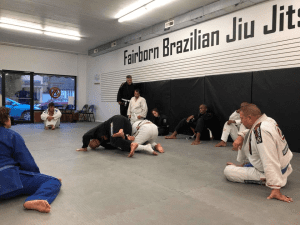 That might seem like a small thing but you have no idea how much going to a new BJJ academy can feel like the first day of kindergarten. All the other children are playing in the sandbox or on the swings and you just know they’re all thinking, “who’s the new kid?” But that introduction really helped get rid of that awkward feeling. If you’re a Jiu-jitsu instructor and you’re reading this, take note. A study I read once tried to find the single highest predicting variable of who at a Brazilian Jiu Jitsu studio will continue their membership. The result: how many other students know your name.
The lesson was helpful as well. Like most gyms I’ve been to, I was one of the smallest guys there. They all had that midwest powerlifter look. But the lesson really helped with something I had struggled with. I would often get mount on folks and get launched off right away. But the technique was to make my body parallel to theirs and snake my legs under theirs. Then, without looking, you can feel what direction they are trying to push you and you can resist. It helped me survive a lot longer on top.
That might seem like a small thing but you have no idea how much going to a new BJJ academy can feel like the first day of kindergarten. All the other children are playing in the sandbox or on the swings and you just know they’re all thinking, “who’s the new kid?” But that introduction really helped get rid of that awkward feeling. If you’re a Jiu-jitsu instructor and you’re reading this, take note. A study I read once tried to find the single highest predicting variable of who at a Brazilian Jiu Jitsu studio will continue their membership. The result: how many other students know your name.
The lesson was helpful as well. Like most gyms I’ve been to, I was one of the smallest guys there. They all had that midwest powerlifter look. But the lesson really helped with something I had struggled with. I would often get mount on folks and get launched off right away. But the technique was to make my body parallel to theirs and snake my legs under theirs. Then, without looking, you can feel what direction they are trying to push you and you can resist. It helped me survive a lot longer on top.
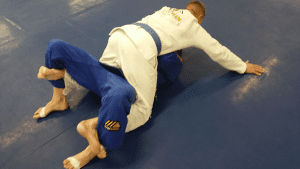 A week later, I found myself rolling with Tom, one of the guys from Boston BJJ. Like normal, he was kicking my ass. But I managed to get on top and use the leg-snaking technique from Fairborn. I stayed on for a full minute before getting swept-up. But as soon as the timer marked the end of the round he looked at me and said, “You are a LOT better than you were a month ago!”
I’d like to say that it was Fairborn that helped me get that compliment. In reality, there’s no magic technique that helps fix your game. But it’s the slow tweaking of fundamental movements overtime that makes you more efficient and better at the sport. Even the fanciest of moves needs to be built on the awareness of the basics. Similar to therapy, it can be tempting to think that you need some fancy tool to break through to your clients so you can feel like Robin Williams in Good Will Hunting. But more often than not, it’s just making a minor switch and then practicing it over and over again.
As far as I know, the academy doesn’t live where it used to anymore. If you want to meet those guys and train with them, they merged with Dayton Mixed Martial Arts Academy. I remember them talking about the move when I was there. If any of you are reading this, I hope the transition went well.
Dust Mop Takeaway:
That leg snaking technique served me for a really long time. So did the idea of being more friendly to new folks at the gym. I always want to be more like that instructor who introduced me to everyone. But more often than not, I was at a new gym where I was waiting for folks to welcome me in. Fairborn is the only place where I didn’t feel that.
As I look back, Fairborn is emblematic of the importance of fundamentals. It’s the building blocks of everything in BJJ, therapy and almost everything else I can think of. Building that awareness of what you are doing, and why you are doing it. Using them doesn’t mean that you will win, but not knowing them means almost certain failure.
–
My goal is to visit 100 gyms! If you ever want me to visit yours and write about what it’s like to learn from you, feel free to reach out at [email protected]. You can also follow me @DustMop_JiuJitsu
If you want to read my articles as soon as they’re published be sure to subscribe below!
A week later, I found myself rolling with Tom, one of the guys from Boston BJJ. Like normal, he was kicking my ass. But I managed to get on top and use the leg-snaking technique from Fairborn. I stayed on for a full minute before getting swept-up. But as soon as the timer marked the end of the round he looked at me and said, “You are a LOT better than you were a month ago!”
I’d like to say that it was Fairborn that helped me get that compliment. In reality, there’s no magic technique that helps fix your game. But it’s the slow tweaking of fundamental movements overtime that makes you more efficient and better at the sport. Even the fanciest of moves needs to be built on the awareness of the basics. Similar to therapy, it can be tempting to think that you need some fancy tool to break through to your clients so you can feel like Robin Williams in Good Will Hunting. But more often than not, it’s just making a minor switch and then practicing it over and over again.
As far as I know, the academy doesn’t live where it used to anymore. If you want to meet those guys and train with them, they merged with Dayton Mixed Martial Arts Academy. I remember them talking about the move when I was there. If any of you are reading this, I hope the transition went well.
Dust Mop Takeaway:
That leg snaking technique served me for a really long time. So did the idea of being more friendly to new folks at the gym. I always want to be more like that instructor who introduced me to everyone. But more often than not, I was at a new gym where I was waiting for folks to welcome me in. Fairborn is the only place where I didn’t feel that.
As I look back, Fairborn is emblematic of the importance of fundamentals. It’s the building blocks of everything in BJJ, therapy and almost everything else I can think of. Building that awareness of what you are doing, and why you are doing it. Using them doesn’t mean that you will win, but not knowing them means almost certain failure.
–
My goal is to visit 100 gyms! If you ever want me to visit yours and write about what it’s like to learn from you, feel free to reach out at [email protected]. You can also follow me @DustMop_JiuJitsu
If you want to read my articles as soon as they’re published be sure to subscribe below!
